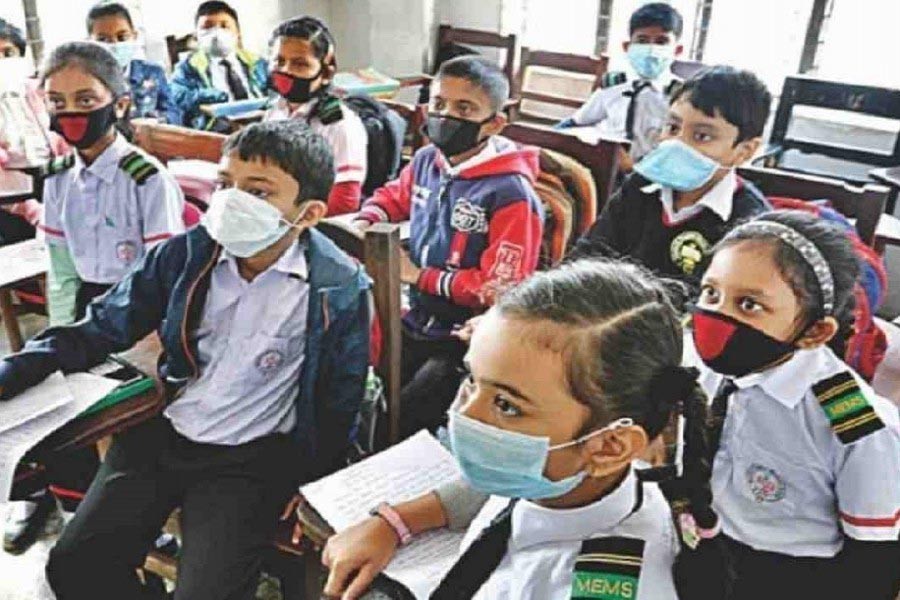School closures have caused large and persistent damage to children’s learning and wellbeing, the cost of which will be felt for decades to come, according to a new report by the Global Education Evidence Advisory Panel (GEEAP), supported by the UK’s Foreign, Commonwealth and Development Office, UNICEF, and the World Bank.
Key evidence and findings from the report were presented and discussed on Saturday in Dhaka at a virtual event attended by expert panellists representing the GEEAP, FCDO, the World Bank, UNICEF, development practitioners and the government.
‘Prioritising Learning During COVID-19’ presents the latest data on the impact of school closures on children.
Estimates suggest that without urgent action, a Grade 3 child who has lost one year of schooling during the pandemic could lose up to three years’ worth of learning in the long run.
In Bangladesh, the education of 37 million children has been disrupted in what has been one of the longest school closures in the world due to the pandemic.
Since closing in March 2020, schools in Bangladesh remained shuttered for 18 months. They were reopened in September 2021 but were again closed for a month in February 2022.
The pandemic has disrupted the education of millions of students in Bangladesh on an unprecedented scale as anywhere else in the world.
Dr Dipu Moni, Minister of Education, government of Bangladesh, during the panel discussion said, "For the future of these children and for their present well-being, it is crucial that we invest in recovery of learning losses and ensure that all children come back to and remain in school."
"Therefore, we are moving towards blended education, and the government with the support of its partners is committed to that goal,” said the minister.
The economic cost of lost learning from the crisis will be severe. The World Bank estimates a USD $17 trillion loss in lifetime earnings among today’s generation of schoolchildren if corrective action is not urgently taken.
“Recognising the severity of the impact of school closings on children, this second Panel report offers practical guidance on how education systems can respond to ensure that the learning needs, especially of marginalised and disadvantaged groups, are addressed based on the best evidence available during a rapidly changing crisis,” says Rachel Glennerster, Associate Professor of Economics in the Division of Social Science at the University of Chicago.
“School closures have been difficult for all children, but poor and girl children were most affected. They suffered greater learning losses and were at higher risk of dropping out. Even before the pandemic, in 2017, more than half of the Bangladeshi children completing primary school could not read and comprehend a simple text," Mercy Tembon, World Bank Country Director for Bangladesh and Bhutan.
“COVID-19 has been the largest disruptor of education in modern history. At the height of school closures, 1.6 billion children and young people were out of school. Education is a human right and a gateway to other rights. We need it for gender equality, lasting poverty reduction, and building prosperous, resilient economies, and peaceful, stable societies," says Judith Herbertson, Development Director, British High Commission in Dhaka.
“We must go above and beyond opening classrooms. We need to ensure that schools are fully open, and that all children are able to return to school, including those who have been furthest left behind. What they need now is intensive support to get back on track,” said Mr Sheldon Yett, UNICEF Representative to Bangladesh.


